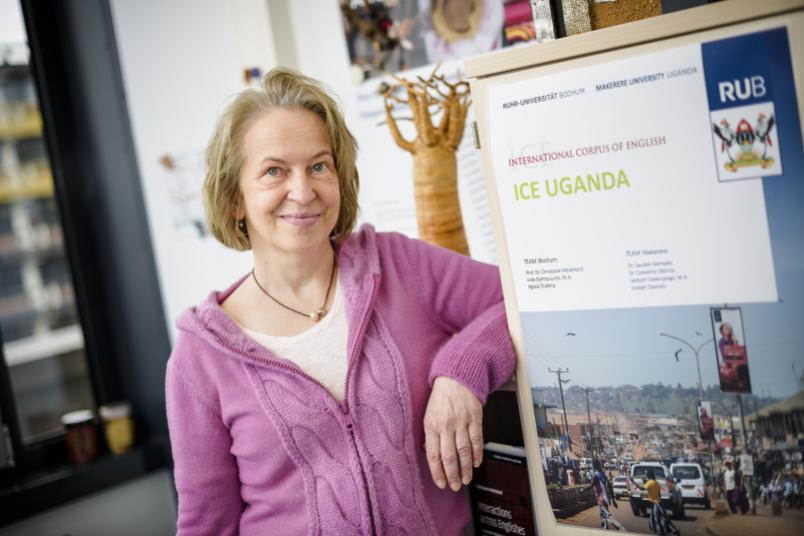
Linguistics
British English shouldn’t always be the benchmark
In many African countries where English is an official language local varieties of English have developed. This can lead to problems for students in those countries.
Linguists at the Department of English of Ruhr-Universität Bochum (RUB) analyse how English has evolved in the former African colonies. In many of these, English is an official language. Based on data that the researchers have predominantly gathered in Uganda, they are compiling one part of the “International Corpus of English”. They hope that this will not only result in new scientific insights into language contact and language change but also contribute to a fairer grading of the performance of school and university students in the future. Currently, most teaching resources follow British English standards, although traditional Oxford English is hardly spoken by anyone in Africa, not even by high-ranking figures at official occasions. However, British English is generally used as a standard for grading.
Headed by Prof Dr Christiane Meierkord at the Chair of English Linguistics, the researchers collaborate with colleagues from Gulu and Makerere Universities in Uganda. They analyse the features of the variety of English spoken in that country. A precise description could one day be factored in when assessing the performance of students at schools and universities. In a first step, the researchers compile raw data. These may include audio recordings of spoken English, as well as written resources such as private letters, newspaper articles, documents and academic texts.
Detailed analysis of texts and recordings
In the process, Meierkord and her colleagues realised that Ugandans don’t use the word “please” as often as native speakers of British or American English. Rather, they frequently say “I request that you…”, a phrase that sounds very direct and downright impolite in places outside Uganda.
Consequently, the researchers investigated phrases that are used to express politeness. They analysed each individual speech act, calculated the statistical significance of the occurrence of individual words, and studied the intonation curves in audio recordings.
Interviews with people from Uganda helped the researchers understand why the common polite phrases are not used: an equivalent does not exist in the native languages. A “please” or “may you” would have no relevance whatsoever. Rather, both express that something is not urgent or important and are not understood to be particularly polite, either.
Each culture has its own linguistic features
The fact that people in Uganda have developed their own variety of English is not something that is specific to Africa; rather, this is also the case in many countries in Asia, in the Caribbean and on the Indian subcontinent. According to Meierkord, the objective shouldn’t be for everybody around the world to converse in native-like British or American English. “Only few speakers attain this level of proficiency anyway. In everyone else, including many English philology scholars, the mother tongue will always affect the foreign language, which is evident in syntax and pronunciation.” Moreover, doing away with local features of English would not make sense in a different culture.
Detailed article in Rubin
Further information is available in a detailed article in the Ruhr-University of Bochum’s science magazine Rubin. Texts on the website and images in the download section may be used for editorial purposes, free of charge, provided the relevant copyright notice is included.